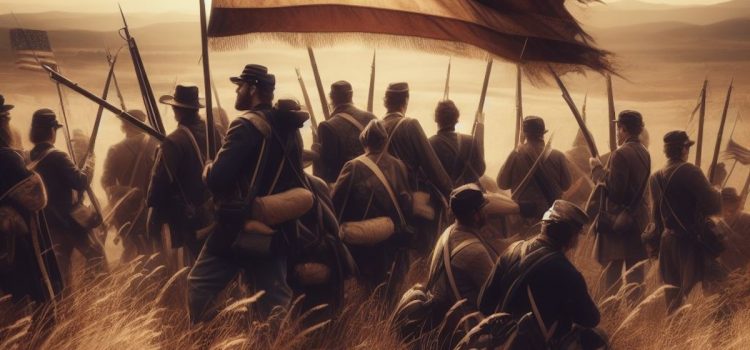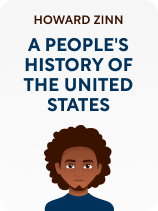

This article is an excerpt from the Shortform book guide to "A People's History of the United States" by Howard Zinn. Shortform has the world's best summaries and analyses of books you should be reading.
Like this article? Sign up for a free trial here.
What contributed to the outbreak of the US Civil War? What role did racism play in both the military and society? With whom did American Indian tribes align themselves?
The US Civil War was a devastating conflict. The poor suffered the most, with Free Blacks and escaped slaves playing a pivotal role despite facing racism in the North. American Indian tribes strategically aligned with different sides for territorial security and political advantage.
Read more to get a people’s history of the Civil War, according to historian Howard Zinn.
History of the Civil War (1861-1865)
The rapid expansion of the US rekindled old simmering conflicts over the country’s political and economic future, which eventually culminated in a long, bloody civil war. In Zinn’s history of the Civil War, he argues that the war was caused by conflicting economic interests of Northern and Southern elites. The Northern elite of bankers, merchants, and industrialists wanted an industrial economy, while Southern plantation owners wanted an economy based primarily around agriculture and slave labor.
For decades, this conflict played out in political debates over the expansion of slavery to new states—expanding slavery would mean more pro-slavery congressmen and a larger portion of the economy dedicated to slave agriculture. Northern elites made countless concessions to Southern elites during this era, prioritizing stability over ending slavery. But, this conflict ultimately couldn’t be resolved through politics alone. When Abraham Lincoln was elected president on the platform of stopping the expansion of slavery, Southern elites decided to secede from the country and formed the new Confederate States of America. The North, also known as the Union, then went to war to defeat the rebellion and reunify the country.
| Is the US Constitution a Failed Document? The authors of the US Constitution stated that its purpose was to mediate conflict between different factions through the political process. However, despite nearly a century of efforts, the constitutional system was unable to mediate the major political disagreements between Northern and Southern elites—seemingly failing at the main purpose it was meant to serve. Some historians suggest that, while the Constitution did fail in the years leading to the Civil War, US politicians were able to fix its major flaws through the 13th, 14th, and 15th Amendments, which banned slavery and discrimination while ensuring voting rights for all men. Others argue that, while these changes resolved a specific conflict, they didn’t change the core issue with the Constitution—that, when two powerful factions were fundamentally at odds with one another, the political system created by the Constitution couldn’t prevent the breakdown of order into violent conflict. |
Impact of the Civil War
Though conflict among the elites caused the Civil War, Zinn explains that the poor fought and paid for it. Hundreds of thousands of poor Americans fought and died on both sides of the conflict as it became much longer and larger than expected. The wealthy, on the other hand, could pay to avoid the draft or hire a substitute to fight for them. Free Blacks and slaves were a decisive factor in the war, Zinn suggests—as many as 200,000 free Blacks and escaped slaves joined the Union army, while slaves within the Confederacy crippled its economy by running away, refusing to work, or turning on their owners.
Despite the invaluable support of Blacks, racism in the North remained common. White civilians and soldiers often harassed their free Black counterparts, while the Union military often sent Black units on suicide missions. Many white Northerners rioted because they were angry about fighting on behalf of Blacks, attacking free Blacks and destroying their property.
(Shortform note: Various American Indian tribes (and sometimes, only portions of tribes) sided with both the Union and Confederacy during the American Civil War. This was often a matter of strategic convenience—tribes would join whatever side controlled the territory they were inside of or nearest to. They hoped that by doing so, they would gain the influence or leverage necessary to prevent further Indian removal or gain back their lands. Most notably, large portions of the Cherokee people joined the Confederacy in exchange for promises of supplies, protection, and political participation, though these were quickly abandoned and a majority of the Cherokee population died during the conflict.)

———End of Preview———
Like what you just read? Read the rest of the world's best book summary and analysis of Howard Zinn's "A People's History of the United States" at Shortform.
Here's what you'll find in our full A People's History of the United States summary:
- A bottom-up view of American history focusing on the people, not the politicians
- How Indigenous people, Black Americans, women, laborers, and activists lived
- Why social movements of the 60s and 70s failed to create lasting change






